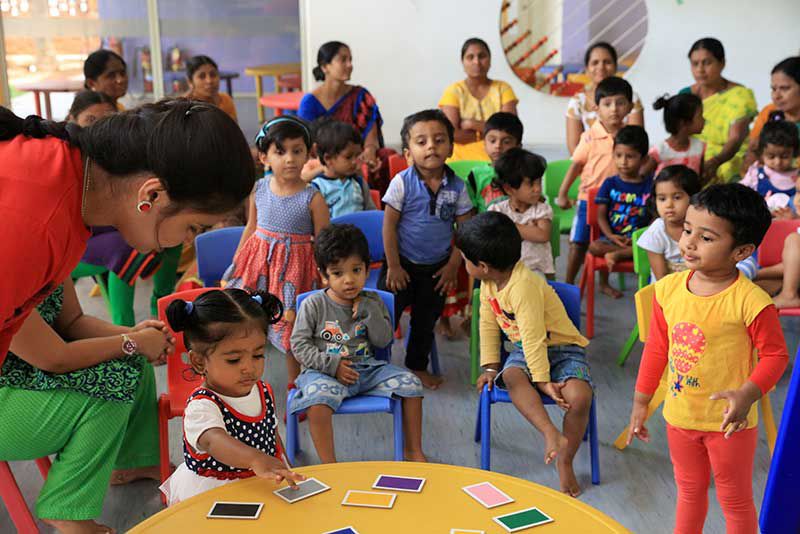Employer-Supported Childcare Brings Benefits to Families, Employers, and the Economy
Globally, women on average are responsible for nearly three-quarters of unpaid care work (ILO, 2019), which negatively impacts their participation in paid work. The World Bank Group’s Gender Strategy, IFC’s Vision 2030, and the SDGs recognize that good quality, affordable childcare can enable women’s access to more and better jobs. Yet globally, childcare that aligns with parents’ needs, values, work hours, and income levels remains scarce. Nearly 350 million need childcare but don’t have access to it (World Bank, 2021).
In addition to governments and childcare providers, employers have a role to play in addressing the global care crisis. Employer-supported childcare can be particularly impactful in low-income and post-conflict contexts where the fiscal space may be constricted, publicly provided services may be limited, and where parents often must choose between working or providing care.
 Children play games and have class exercises at Little Critters daycare center at Mindtree in Bangalore, India on July 28, 2017. MIndtree is one of the few employers in India who offers onsite daycare for the employees children. Photo: Dominic Chavez/IFC
Children play games and have class exercises at Little Critters daycare center at Mindtree in Bangalore, India on July 28, 2017. MIndtree is one of the few employers in India who offers onsite daycare for the employees children. Photo: Dominic Chavez/IFC
The Business Case
Since 2017, IFC’s series of Tackling Childcare reports spanning 20+ countries, such as Bangladesh, Cambodia, Fiji, India, Jordan, Pakistan, Myanmar, Sri Lanka, Vietnam, and others, shows that family-friendly workplace policies such as childcare, flexible work, and paid leave can enable firms to attract and retain talent, boosting productivity and profits. Such policies can also enable more working parents, particularly women, to realize their income-earning potential, and enable more children to be healthier and more productive as adults. Hence, childcare can result in a win-win-win for families, employers, and economies.
Our Approach
IFC’s Global Tackling Childcare Advisory Program works with client companies, the World Bank, governments, and related entities to implement good childcare and family-friendly practices through research, advisory, investments, and private sector peer learning. IFC’s new Care2Equal Program builds on Tackling Childcare with a holistic view on care, aiming to expand private sector investments and action related to childcare, elderly care, and mental health care.
IFC is also committed to expanding knowledge and promoting global, multi-stakeholder discussions on this topic, such as through its Global Tackling Childcare Working Group of more than 30 organizations.
Follow this work on Twitter #TacklingChildcare #Care2Equal and read various reports, case studies, and blogs linked on this page.
